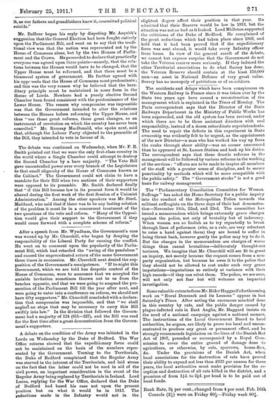Mr. Balfour began his reply by disputing Mr. Asquith's suggestion
that the General Election had been fought entirely upon the Parliament Bill, and went on to say that the tradi- tional view was that the nation was represented not by the House of Commons alone, but by the two Houses of Parlia- ment and the Crown. He proceeded to declare that practically everyone was agreed upon three points—namely, that the rela- tions between the Houses would have to be changed, that the Upper House must be reformed, and that there must be a bicameral system of government. He further agreed with his oppcnents that the House of Commons must predominate ; and this was the very reason why he believed that the here- ditary principle must be maintained in some form in the House of Lords. Nowhere kad a purely elective Second Chamber been found consistent with the predominance of the Lower House. The reason why compromise was impossible was that the Government intended to alter the relations between the Houses before reforming the Upper House, and thus "use those great reforms, those great changes, as an instrument of revolution on which the country has never been consulted." Mr. Ramsay MacDonald, who spoke next, said that, although the Labour Party objected to the preamble of the Bill, they intended to vote in favour of it.






































 Previous page
Previous page